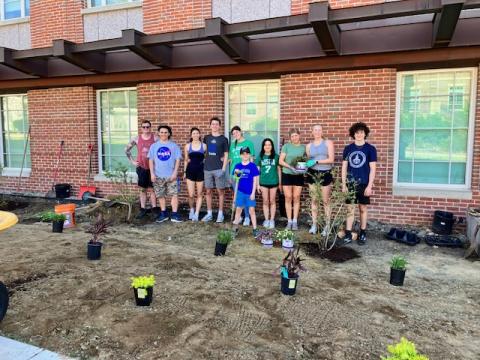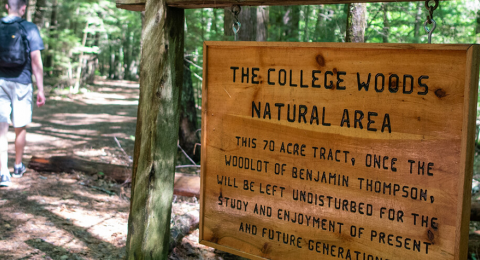100%
Campus snow removal managed with Green SnoPro to reduce toxics
600
Acres of land managed organically across the state
4,800
Tons of carbon sequestered by UNH forestlands annually
Grounds & Landscape Management
The beauty and character of our campus make UNH an amazing place to work, live, learn and play – and that is no accident. UNH’s sustainable approach to landscape management helps keep it healthy and resilient.
A Roadmap for Healthy and Resilient Lands
A complement to the Campus Master Plan and developed by the Ecosystem Task Force, UNH's Landscape Master Plan (LMP) lays out our commitment to sustainability principles and practices. The new 2021 LMP is our roadmap for ensuring our campus grounds are healthy, adaptive and resilient.
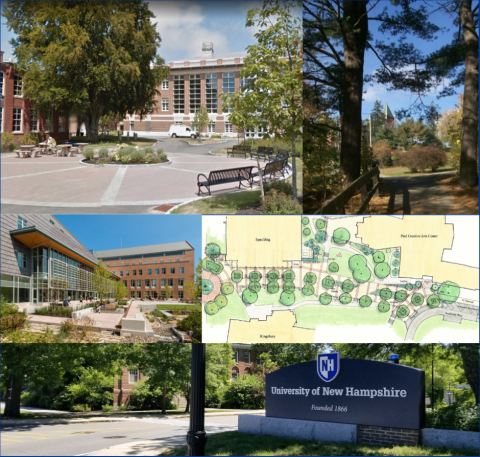

STARS EVALUATION
3.34/4
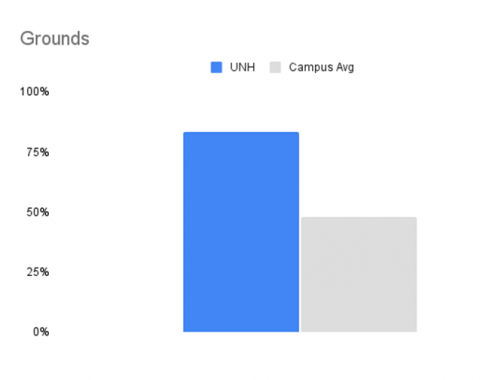
UNH earned 84% of total points available (3.34/4) compared to an AASHE member average of 47.98%.
STARS "seeks to recognize institutions that are measuring and reducing their greenhouse gas and air pollutant emissions. In addition, institutions that inventory and take steps to reduce their air pollutant emissions can positively impact the health of the campus community, as well as the health of their local communities and regions."
Organic & Integrated Pest Management
In addition to managing the Durham, NH campus, UNH owns and manages fields, forests and other ecosystems across Durham, the Seacoast and the state of NH. We use an organic management approach across 600 of those acres, and integrated pest management for the rest, to minimize the use of synthetic and toxic chemicals, resource use and habitat disruption.
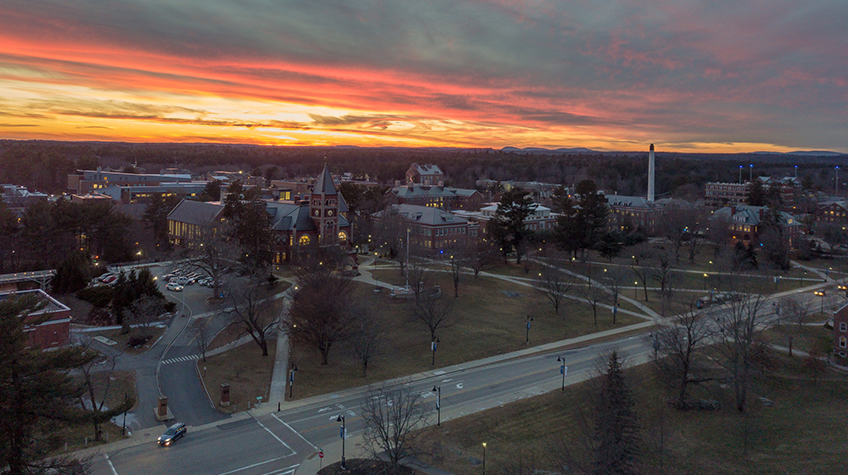
Biodiversity
For our Durham, NH campus, Campus Planning and Grounds and Events are constantly monitoring flora and fauna and planning to ensure our landscape management practices support healthy ecosystems. In addition, faculty and students conduct research on our campus waterways, forests, and lands.
For our holdings beyond campus, the Office of Woodlands and Wildlands works to ensure our land management practices balance ecosystem stewardship, recreational use, and productivity.
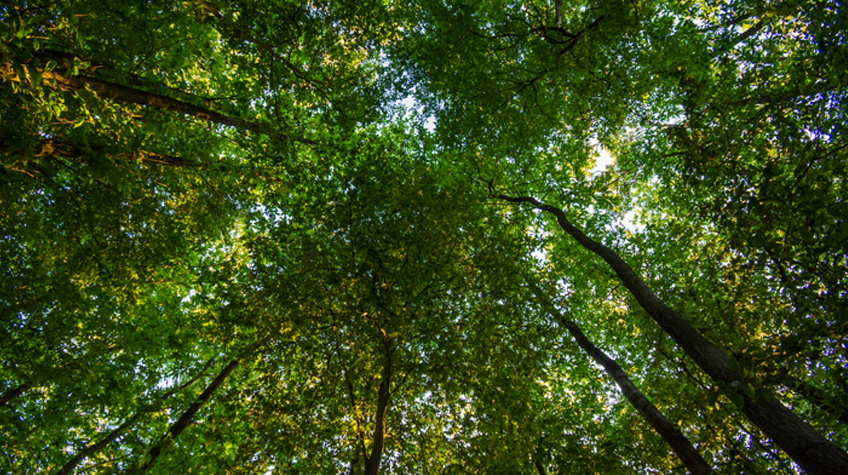
Becoming Bee Campus Certified
UNH is a certified Bee Campus! UNH's Sustainability Institute and Ecosystem Task Force lead the application process each year and help to organize the Bee Campus USA at UNH. The Sustainability Institute is working with Grounds and Events, Campus Planning, Student Government, and other entities to implement pollinator gardens around campus. The first garden created is next to James Hall. In 2024, our second pollinator garden was installed at Nesmith Hall by Sustainability Institute interns and volunteers. Additional gardens will be created by and maintained by UNH departments, student groups, and campus entities and will host informational signage identifying gardens as Bee Campus USA gardens and discuss the importance of pollinators. Different classes from the Natural Resource and the Environment department, the Thompson School of Applied Agriculture and UNH Cooperative Extension will also be able to use the gardens as a positive teaching tool. Read more about UNH's path to becoming Bee Campus certified.
